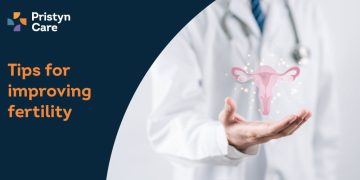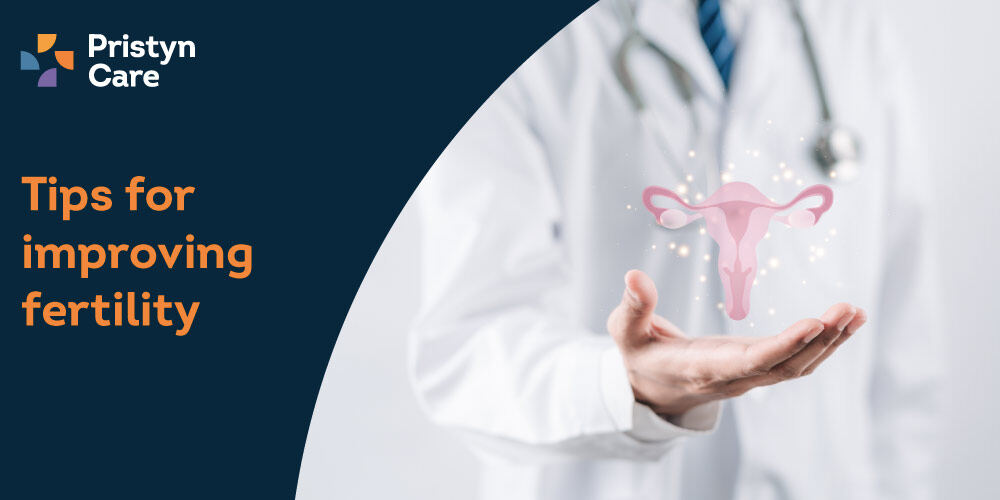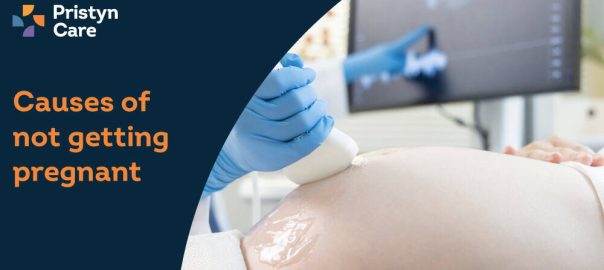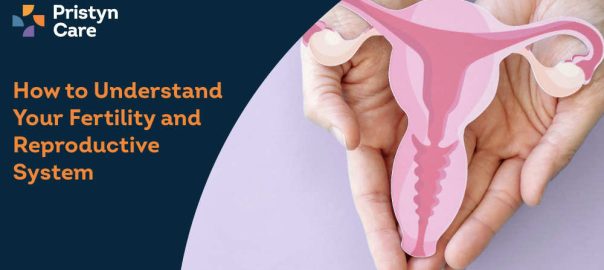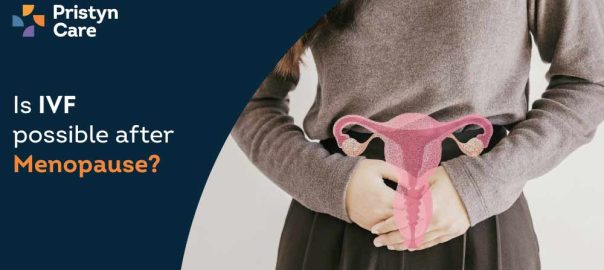![]() Views: 63
Views: 63
Tips for Improving Fertility
Are you exploring natural ways to boost your fertility? A journey towards conception can be as personal as it is diverse, involving numerous factors that influence your ability to conceive. Diet to get pregnant and exercises to conceive are pivotal areas where simple changes can make a significant impact.
Dedicated Support at Every Step!
Our Doctors are available 24 hours a day, 7 days a week to help you!
Call Us9513-316-643
This article gets into practical tips that not only enhance your overall health but are specifically aimed at increasing fertility. Whether you are just beginning to think about starting a family or have been trying for a while, understanding how to nurture your body is essential. Let us get started for now.
Table of Contents
10 Tips to Improve Fertility
To support your fertility journey, it’s essential to adopt practices that improve your overall reproductive health. Here are ten tips for you to improve fertility, each designed to address different aspects of fertility, from lifestyle changes to specific health interventions.
1. Optimising Your Diet for Fertility
Optimising your diet to get pregnant plays a pivotal role in enhancing fertility. Consuming a diet rich in folic acid, iron, and omega-3 fatty acids improves reproductive health and egg quality. Men should focus on nutrients that boost sperm quality, such as zinc and selenium, which are vital for sperm motility and development.
Including a variety of colourful fruits and vegetables can provide a wide range of antioxidants, which help protect reproductive cells from damage. It’s also advisable to limit intake of processed foods and excessive caffeine as they can negatively impact fertility.
2. Exercise and Fertility
Moderate exercises to conceive can improve fertility by maintaining a healthy weight and reducing stress. Activities like yoga, light jogging, and swimming are recommended as they increase blood flow to reproductive organs and help balance hormones without overstressing the body.
Avoid very strenuous activities as they can have the opposite effect, potentially hindering conception efforts. Regular physical activity should be coupled with sufficient rest and recovery periods to optimise reproductive health.
3. Timing Intercourse for Conception
Understanding the best timing for conception is critical. Monitoring ovulation through body signs and using ovulation predictor kits can guide you on how many times sex to get pregnant effectively.
Engaging in intercourse during the fertile window, typically a few days before and after ovulation, increases the chances of sperm meeting the egg at the optimal time for fertilisation. This strategy maximises the potential for sperm survival and successful egg fertilisation.
4. Addressing Male Fertility Issues
To address issues like a zero sperm count how to increase your chances, lifestyle changes such as avoiding hot tubs, reducing alcohol intake, and quitting smoking are crucial. Men should also consider wearing loose clothing and choosing underwear that doesn’t elevate scrotal temperature, as heat can adversely affect sperm production.
Additionally, incorporating supplements with L-carnitine and Coenzyme Q10 may help improve sperm quality and overall reproductive health.
5. Regular Health Screenings
Both partners should engage in regular health check-ups to identify and treat any underlying medical issues that could impact fertility. These assessments can detect hormonal imbalances, infections, or structural issues that may need medical intervention, paving the way for a smoother conception process.
Frequent screenings help ensure that both partners are in their best health, minimising any risks associated with pregnancy and childbirth.
6. Weight Management
Maintaining a healthy weight is essential for fertility. Both being overweight and underweight can disrupt hormonal balance and impede ovulation or sperm production. A balanced diet and consistent exercise regime can help achieve an optimal body mass index (BMI), significantly boosting fertility.
Regular consultations with a nutritionist can provide personalised dietary advice to help achieve and maintain a healthy weight conducive to conception.
7. Managing Stress
High stress levels can negatively affect fertility by disrupting hormone levels. Managing stress through meditation, regular relaxation, and possibly psychological counselling can help maintain hormonal balance, enhancing fertility.
A calm mind and body create an optimal environment for conception. Engaging in hobbies and activities that reduce stress can also be beneficial, providing a balanced lifestyle that supports reproductive health.
8. Reducing Toxin Exposure
Limit exposure to environmental toxins and lifestyle habits that can impair reproductive health. This includes avoiding pesticides, heavy metals, and substances like BPA found in some plastics.
Couples should also strive for a smoke-free environment since tobacco has been linked to reduced fertility. Opting for organic and naturally sourced products can further reduce the risk of toxin exposure, supporting better reproductive health.
9. Genetic Factors in Fertility
Couples with a history of fertility issues may benefit from genetic screening to identify potential inherited conditions that could affect their chances of conception. Early detection of genetic factors allows for targeted treatments and better planning for fertility treatments if necessary.
Understanding genetic predispositions can empower couples to make informed decisions about their fertility and family planning strategies.
10. Specialist Consultations
If natural conception strategies do not lead to pregnancy, consulting a fertility specialist can provide further insights. Treatments such as IVF or IUI might be recommended based on a comprehensive assessment of both partners' reproductive health, to ensure effective treatment planning.
Specialists can also offer support and guidance on lifestyle adjustments that may enhance the effectiveness of treatments, increasing the overall chances of a successful conception.
No Cost EMI, Hassle-free Insurance Approval
Final Thoughts
Improving fertility is a complex endeavour that encompasses a range of lifestyle adjustments, medical interventions, and informed personal choices. By prioritising a balanced diet, tailored exercise routines, and regular medical check-ups, couples can significantly enhance their fertility.
Also, understanding and managing stress, maintaining a healthy weight, and limiting exposure to environmental toxins are all crucial steps. For those still facing challenges, consulting with fertility specialists can provide targeted strategies and advanced treatments.
Remember, each couple’s journey is unique, and while the question of how to get a woman pregnant may seem straightforward, it often requires a comprehensive and sensitive approach to address effectively.
FAQs
Q1. How to get pregnant fast?
To get pregnant quickly, time intercourse during your fertile window, usually 14 days before your next cycle. Regular intercourse during this time increases the chance of egg fertilisation. Maintain a healthy lifestyle with a balanced diet, manage stress, and avoid harmful substances. Both partners should undergo preconception check-ups to identify and address any health issues that might impede pregnancy.
Q2. How to increase sperm count naturally?
Naturally increase sperm count by incorporating lifestyle and dietary adjustments. Consume antioxidant-rich foods like berries, nuts, and green leafy vegetables to protect sperm from damage. Regular exercise, maintaining a healthy weight, and managing stress effectively boost sperm production. Avoid toxins such as pesticides and heavy metals, and limit alcohol and tobacco. Ensure adequate intake of zinc and vitamin D to combat low sperm counts.
Q3. What are the 8 signs of healthy sperm?
Healthy sperm are crucial for conception. The eight signs include high concentration, good motility, normal morphology, sufficient semen volume, white or grey colour, proper viscosity, rapid forward movement, and overall vitality. An optimal sperm count exceeds 15 million per millilitre of semen, with at least 40% motility and 4% normal morphology. Regular health checks and healthy lifestyle choices help maintain these vital sperm characteristics.
Q4. Can acupuncture help with fertility?
Acupuncture is increasingly used as an adjunct treatment for fertility. It may enhance fertility by improving blood flow to reproductive organs, balancing hormone levels, and reducing stress. While not a standalone solution, it can complement other fertility treatments by improving their effectiveness and managing side effects.
Q5. How effective are fertility tracking apps?
Fertility tracking apps can be helpful for charting menstrual cycles and predicting fertile windows, but they vary in accuracy. They are most effective when combined with other fertility awareness methods, such as temperature charting and monitoring cervical mucus changes.
Q6. Why is preconception health important?
Preconception health is important as it can affect not only the chances of conceiving but also the health of the pregnancy and the baby. Ensuring both partners are healthy, managing chronic conditions, and avoiding harmful substances can lead to better fertility outcomes and a healthier pregnancy.
Q7. What should be considered when trying for a baby later in life?
When trying for a baby later in life, consider potential challenges such as decreased fertility and increased risks for complications during pregnancy and childbirth. Consult with healthcare providers for a preconception checkup, consider genetic screening, and discuss options like egg freezing or IVF if necessary to maximise the chances of a healthy pregnancy.
Q8. How long should couples try to conceive before seeing a fertility specialist?
Couples under 35 should consider consulting a fertility specialist after one year of trying to conceive without success. For those over 35, the recommendation is to seek advice after six months of unsuccessful attempts. This timing helps address any potential issues promptly, especially as fertility declines with age.



